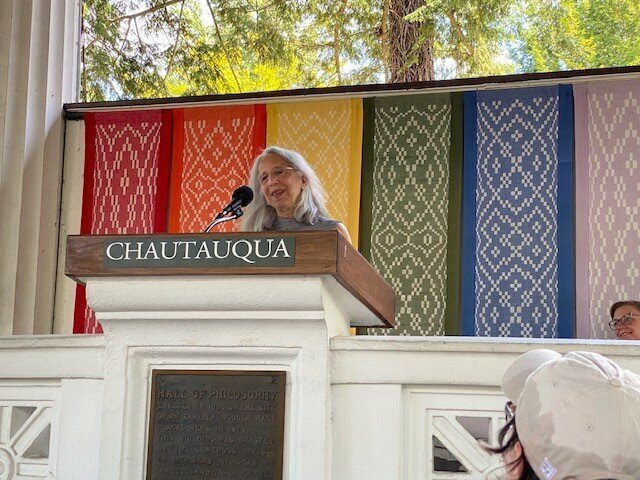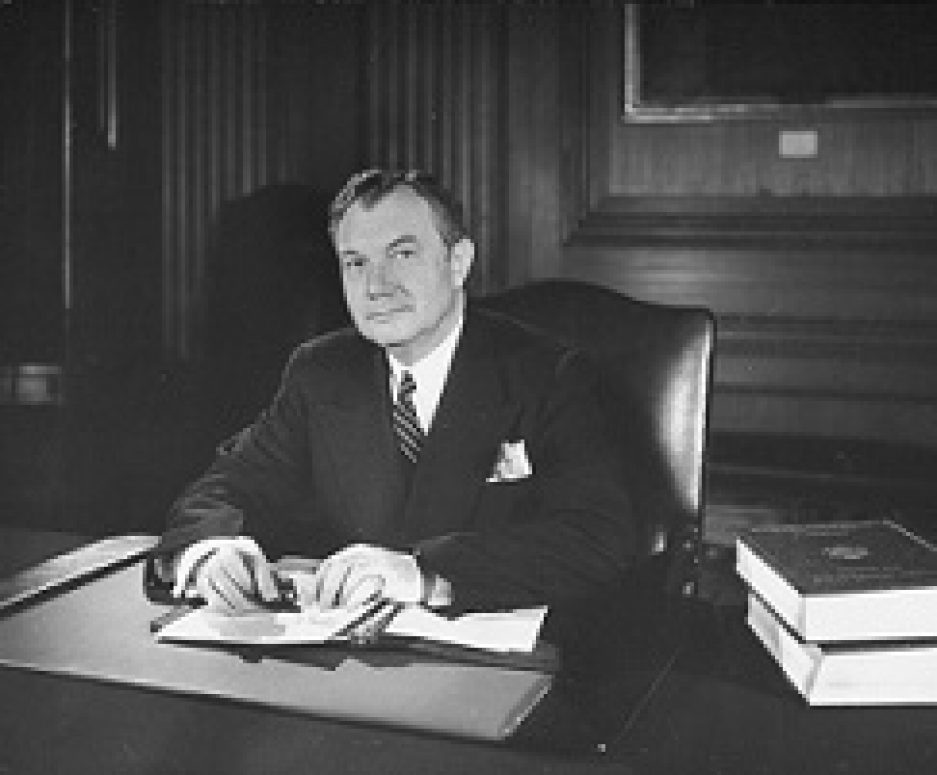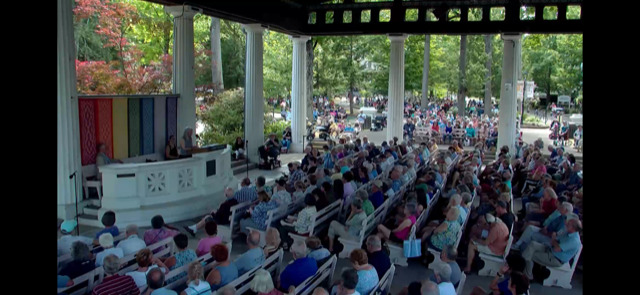On Monday, July 11, 2022, Reva Siegel, Professor of Law at Yale University, was Chautauqua Institution’s 18th annual Robert H. Jackson Lecturer on the Supreme Court of the United States.

To view the video of Professor Siegel’s lecture, which focused on the Supreme Court’s June 24 decision in Dobbs v. Jackson Women’s Health Organization, declaring the constitutionality of Mississippi’s anti-abortion law and overruling Roe v. Wade (1973) and Planned Parenthood of Southeastern Pennsylvania v. Casey (1992), click here:
Professor Siegel also has posted a draft paper, “Memory Games: Dobbs’s Originalism As Anti-Democratic Living Constitutionalism—and Some Pathways for Resistance,” that will be published in the Texas Law Review. To download and read the paper, click here:
https://papers.ssrn.com/sol3/papers.cfm?abstract_id=4179622
* * *
Reva Siegel is the Nicholas deB. Katzenbach Professor of Law at Yale Law School. She teaches Constitutional Law, Reproductive Justice, and other courses. Her writing draws on legal history to explore questions of law and inequality and to analyze how courts interact with representative government and popular movements in interpreting the Constitution.
For her Yale webpage, click here.
To download and read more of Professor Siegel’s articles, papers, and briefs, visit her Social Science Research Network (SSRN) page:
https://papers.ssrn.com/sol3/cf_dev/AbsByAuth.cfm?per_id=100672
* * *
Chautauqua Institution’s Robert H. Jackson Lecture is named in honor of the former Chautauquan, Jamestown lawyer, New Dealer, U.S. Solicitor General, U.S. Attorney General, U.S. Supreme Court justice, and Nuremberg chief prosecutor.
The annual Jackson Lecture at Chautauqua Institution is a leading expert’s consideration of the Supreme Court, its Justices, significant decisions, and related topics in the weeks following the Court’s start of its annual summer recess.
Chautauqua’s Jackson Lecturers have been:
- 2005: Geoffrey R. Stone, University of Chicago professor;
- 2006: Linda Greenhouse, New York Times writer and Yale Law School professor;
- 2007: Seth P. Waxman, WilmerHale partner and former Solicitor General of the United States;
- 2008: Jeffrey Toobin, legal writer and CNN Worldwide chief legal analyst;
- 2009: Paul D. Clement, Bancroft PLLC partner and former Solicitor General of the United States;
- 2010: Jeff Shesol, historian, communications strategist, and former White House speechwriter;
- 2011: Dahlia Lithwick, senior editor at Slate and Amicus podcast host;
- 2012: Pamela Karlan, Stanford University professor;
- 2013: Charles Fried, Harvard University professor and former Solicitor General of the United States;
- 2014: Akhil Reed Amar, Yale University professor;
- 2015: Laurence H. Tribe, Harvard University professor;
- 2016: Tracey L. Meares, Yale University professor;
- 2017: Judge Jon O. Newman, of the U.S. Court of Appeals for the Second Circuit;
- 2018: Justice Rosalie Silberman Abella, of the Supreme Court of Canada;
- 2019: Donald B. Verrilli, Jr., Munger, Tolles & Olson LLP partner and former Solicitor General of the U.S.;
- 2020 (online): Ruth Marcus, Washington Post deputy editorial page editor and columnist; and
- 2021 (online): Melissa Murray, New York University professor and Strict Scrutiny podcast co-host.
* * *
And some final words on Chautauqua Institution—
It is where an attacker last week tried to kill writer Salman Rushdie just before he was to speak on the stage of Chautauqua’s Amphitheater.
That atrocity demonstrates in a tragic way that Chautauqua and all aspects of the peaceful assembly that it stands for are great but also fragile treasures. They were empowering resources in Robert H. Jackson’s own life. They have been that ever since, including in the Jackson Lectures, for so many of us.
We all need to know, value, and rededicate ourselves to nurturing the qualities of living and learning together in peace, at Chautauqua Institution and in all of our places.

